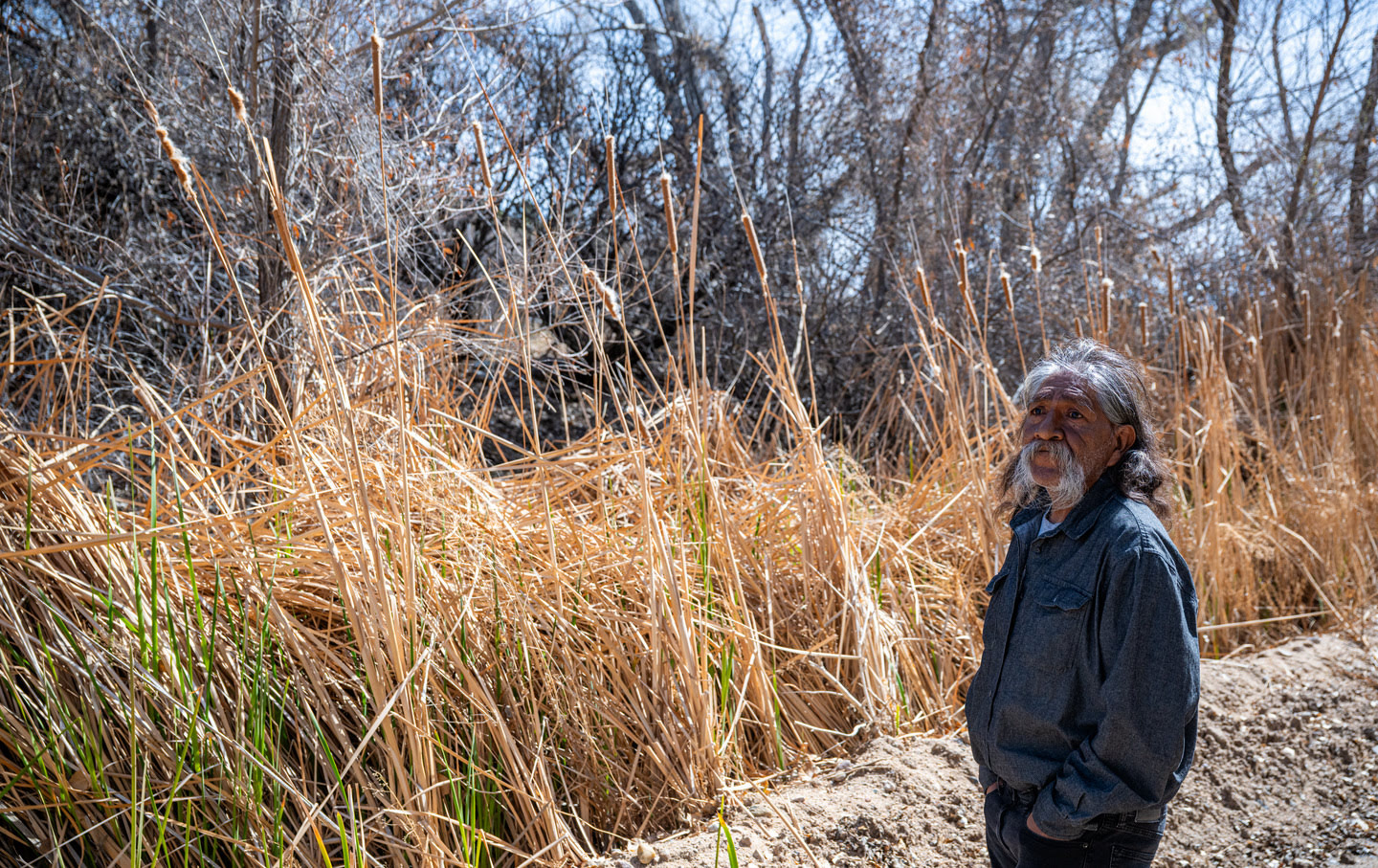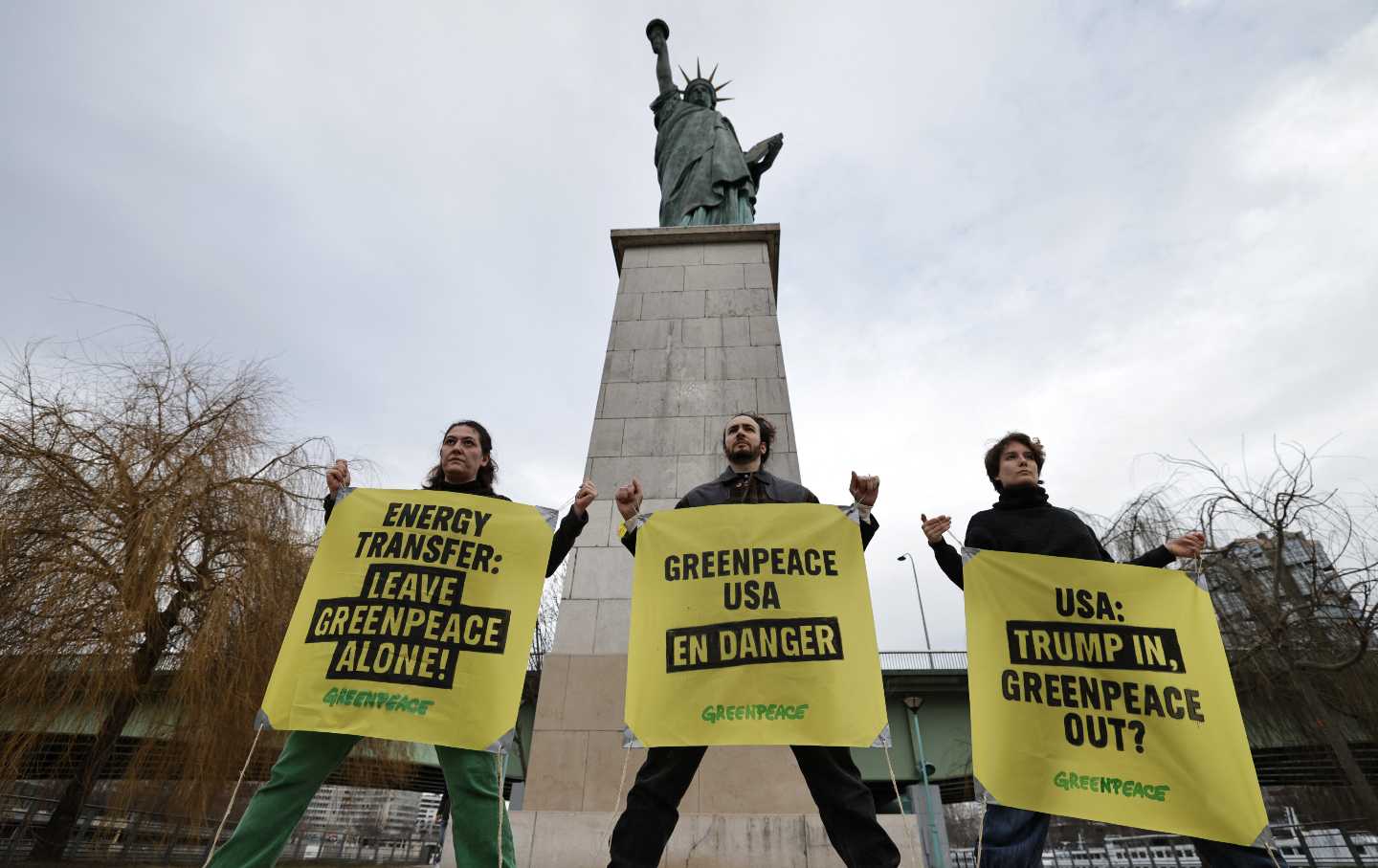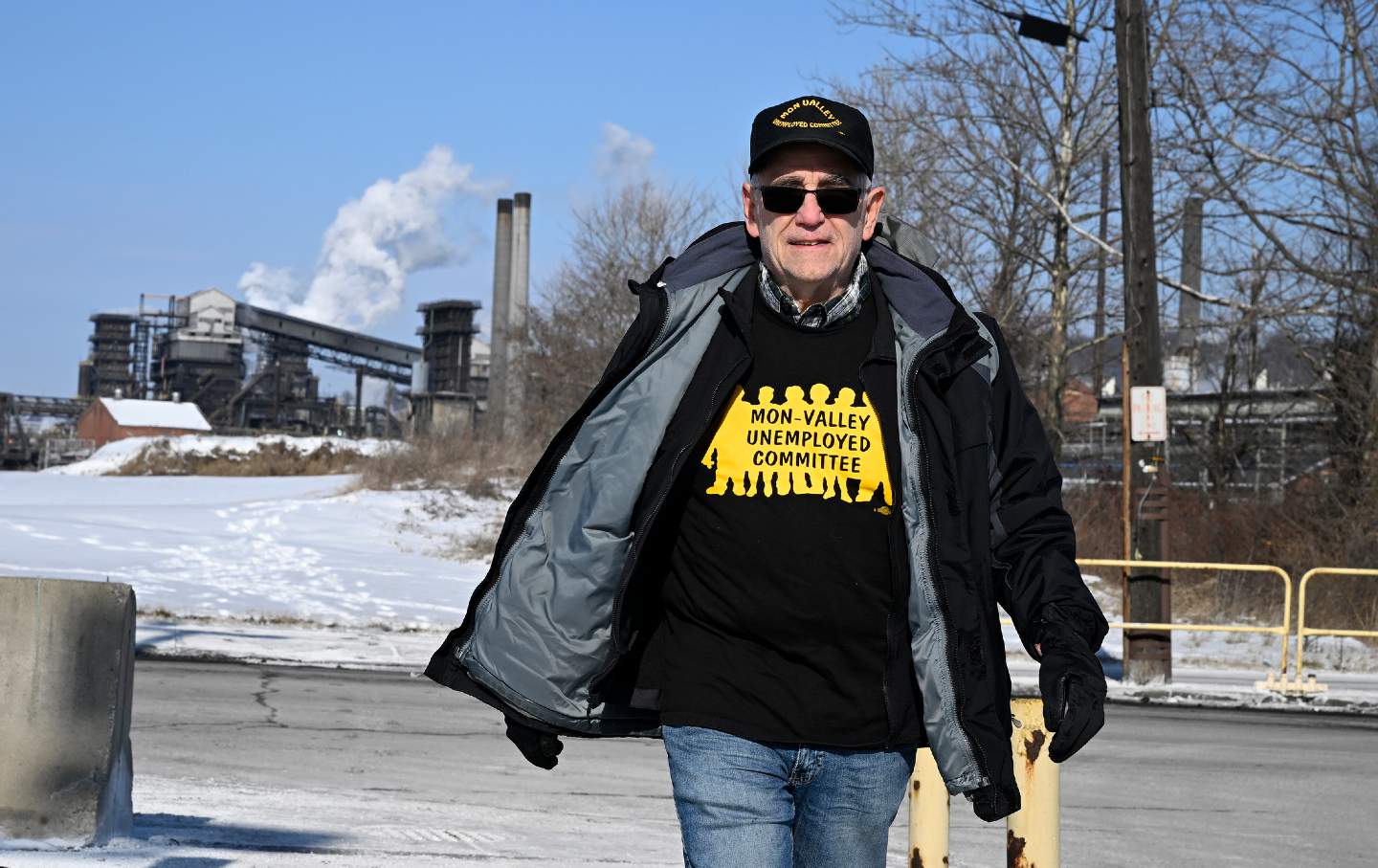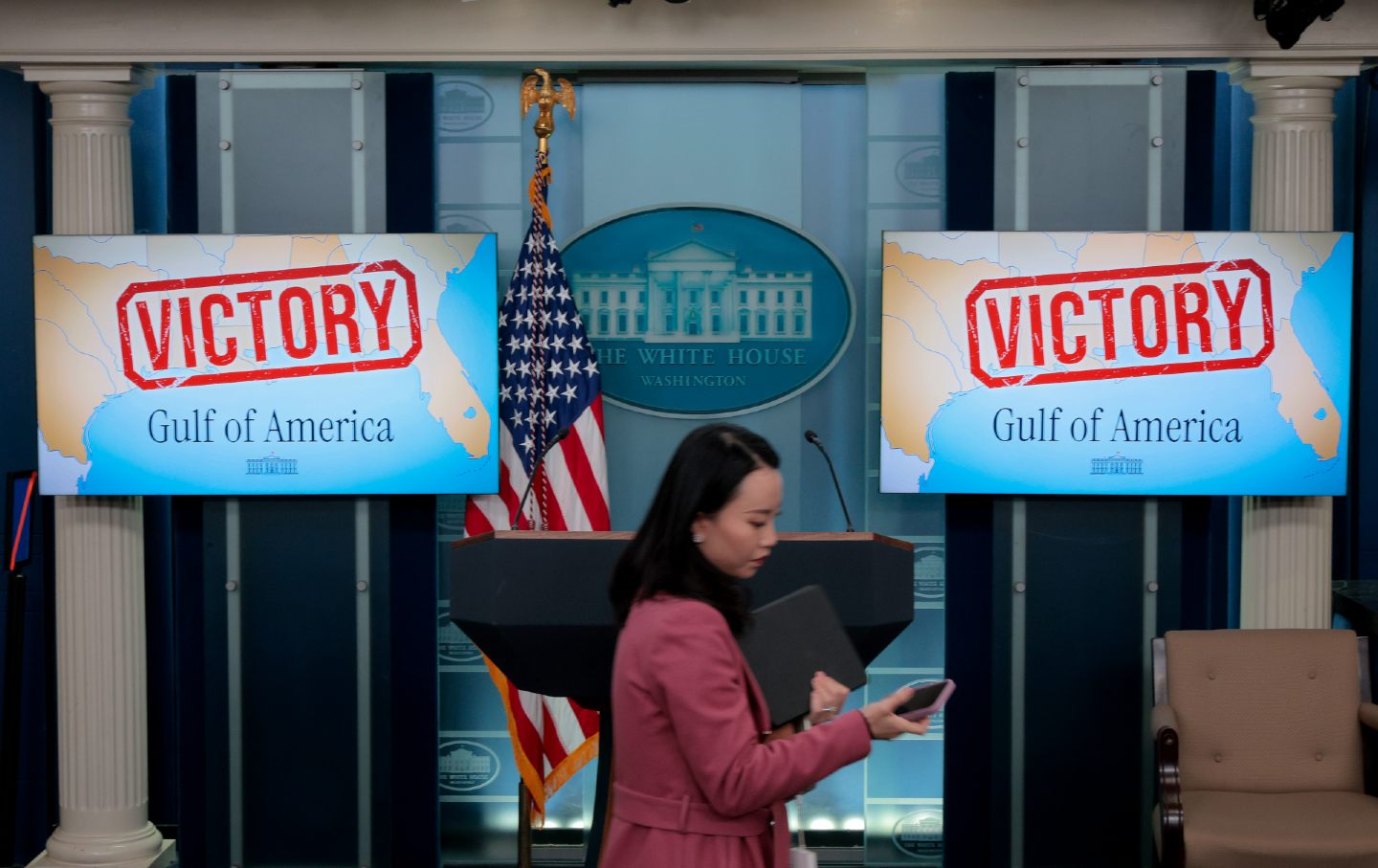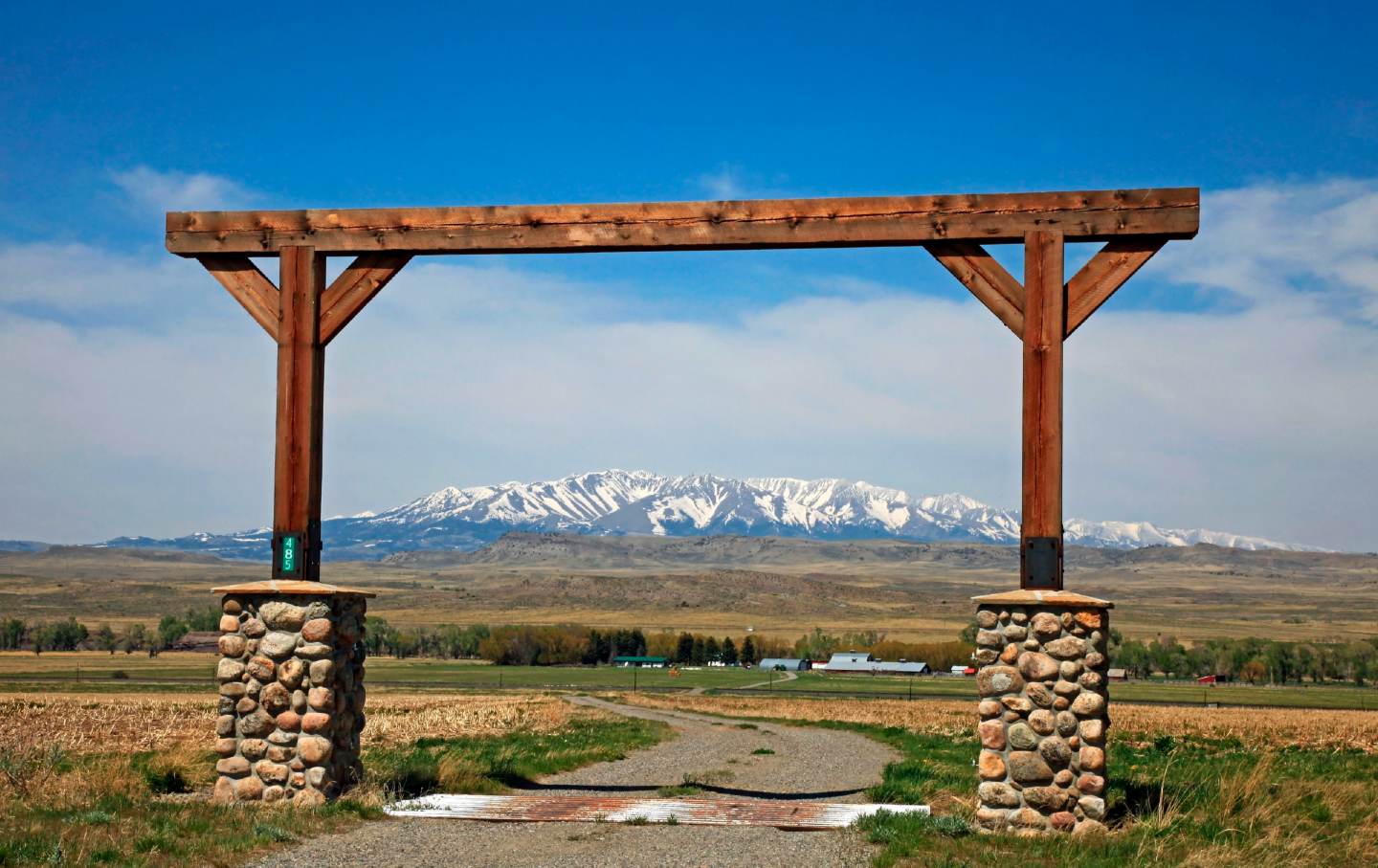Journalists Must Rethink Our Fear of Taking Sides
The media often acts as if identifying threats or naming falsehoods are acts of partisanship. They are not. They are journalism.
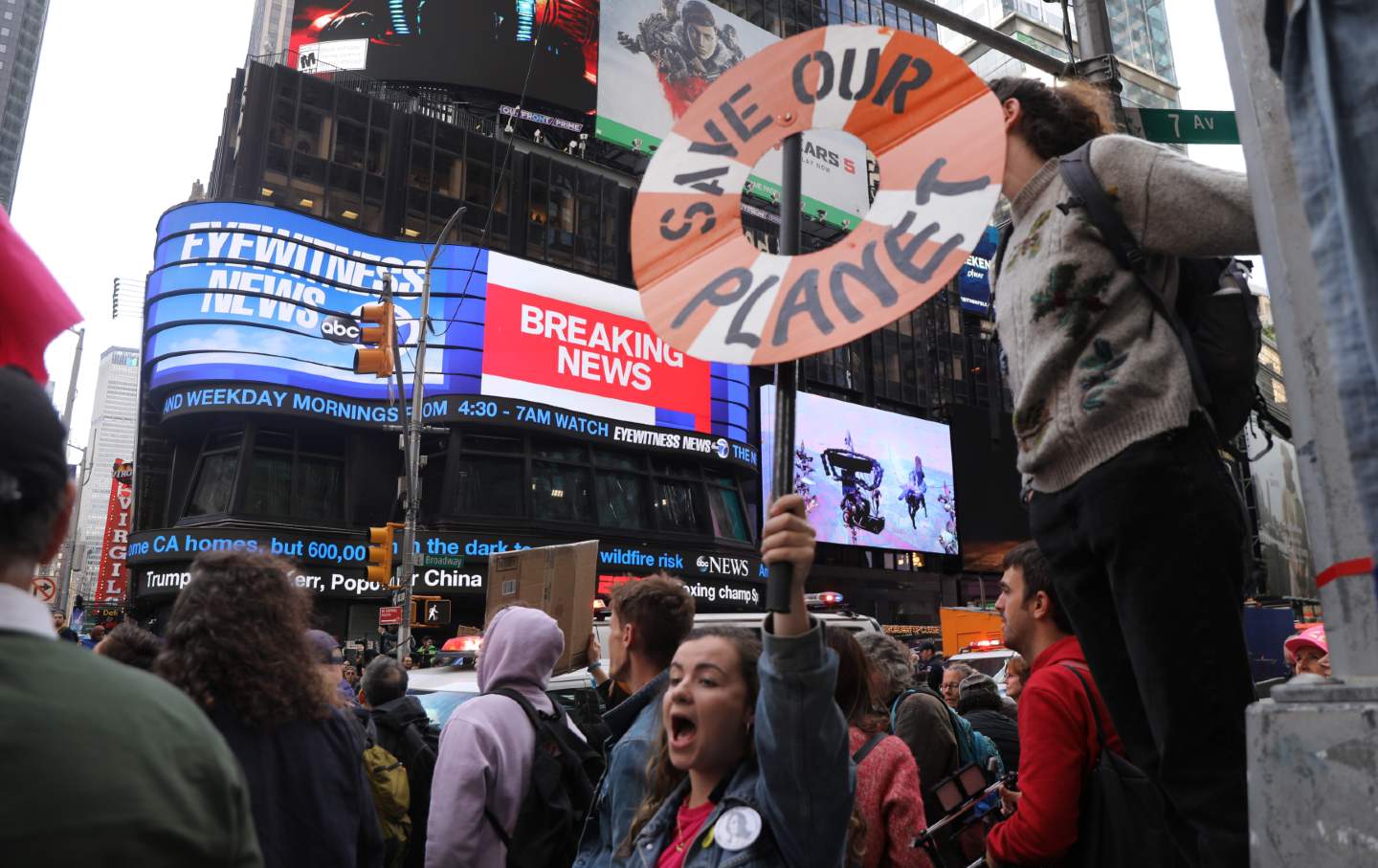
Protesters gather in Times Square as part of a protest by the environmental group Extinction Rebellion on October 10, 2019, in New York City.
(Spencer Platt / Getty Images)
In mid-October, when former top White House and military aides to Donald Trump went on the record calling the former president “fascist to the core” and an admirer of Hitler, mainstream US news coverage of the 2024 election seemed to turn a page. Suddenly, a reality that reporters and editors had recognized privately—that Trump shows no respect for democracy and has pledged, if reelected, to govern like a dictator, using the military against his political opponents—was being reported openly by leading newspapers and TV networks. The public was finally let in on what many media insiders had long been talking about among themselves.
As journalists ourselves, we applaud this new truth telling on the part of our colleagues. But it was slow in coming and remained woefully incomplete even before it was starkly undercut when the billionaire owners of The Washington Post and the Los Angeles Times separately prohibited their editorial boards from publishing endorsements of Trump’s opponent, Vice President Kamala Harris.
Those disgraceful acts of newsroom interference—which both owners tried to justify as public-minded assertions of neutrality—only further illuminate the underlying problem. US news organizations have a long-standing fear of being accused of partisanship—of taking sides rather than simply reporting the news. That fear has led to serious mistakes, in this election year and across the history of politics and the press, as reporters and editors appear to forget that our highest obligation is to report the truth as it is.
Until very recently, most mainstream news coverage of the 2024 elections has pretended that American voters aren’t choosing between democracy and authoritarianism and between a burning planet and an effort to save it. Many of our fellow journalists have been acting as if identifying threats to the common good or naming falsehoods are somehow acts of partisanship.
They are not. They are journalism.
More articles from Covering Climate Now:
As cofounders of the global journalism collaboration Covering Climate Now, we’ve seen this fear of being called partisan weaken coverage of the climate crisis in particular. Especially now, citizens urgently need accurate reporting on climate change and its solutions, including perhaps the most powerful solution of all: voting candidates in, or out, office. But how, a top journalist at a marquee US news outlet asked us, could he plainly describe Trump’s climate record without sounding like the story was taking sides?
The answer, we suggested, is to recognize that candidates and political parties are the ones who bear responsibility for the positions they take. It’s not our job as journalists to make politicians sound more (or less) reasonable than they are. It’s our job to state the facts dispassionately and in context, offer the politician a chance to explain themselves, and then let the public decide.
For example, when Ohio Senator JD Vance, Trump’s running mate, said in the vice-presidential debate that his plan to protect against climate change was to encourage more fossil fuel production in the US—because it’s done cleaner here than in other parts of the world—it was an egregious assault on truth. Scientists have stated repeatedly that fossil fuels must be phased out, rapidly, if humanity is to avoid further catastrophes like hurricanes Helene and Milton. Yet the debate moderators let Vance’s misleading remark stand uncorrected, nodding their heads as if relieved that at least he answered in a civilized tone.
Nor has much mainstream US news coverage stated the undeniable fact that Trump’s policy on climate change is, bluntly, to make it worse. The few stories that have addressed the issue might note that Trump calls climate change “a hoax” and wants to “drill, baby, drill.” But they present those remarks as a mere policy difference, instead of comparing them to what science says and drawing the unavoidable conclusion: If Trump gets his way, our dangerously overheated planet will get even hotter and more dangerous.
A fear of being called partisan has led to some of the least flattering episodes in the US media’s recent history. Twenty years ago, it led many news outlets to amplify instead of challenge President George W. Bush’s false claims about weapons of mass destruction in Iraq. In the 1990s, it led outlets to “both sides” their coverage of climate change by giving equal weight to independent scientists and oil-industry propagandists. In the 1970s, Bob Woodward and Carl Bernstein stood alone among the Washington press corps in investigating the Watergate break-in that eventually led to president Richard Nixon’s resignation—and were widely accused of being partisans “out to get” Nixon for doing so.
The fact is Woodward and Bernstein were partisans, but not partisans against Nixon. They were partisans for the public’s right to know what their elected leaders are doing behind closed doors.
Popular
“swipe left below to view more authors”Swipe →In that same spirit, Woodward and Bernstein quickly rebuked the decision by The Washington Post’s current publisher and owner to kill an editorial board endorsement of Kamala Harris, writing that “this decision 11 days out from the 2024 presidential election ignores the Washington Post’s own overwhelming reportorial evidence on the threat Donald Trump poses to democracy.”
It’s high time for journalists to rethink our fear of taking sides. The point is not to be anti-Trump—or anti-Harris, for that matter. But there is nothing wrong with being pro-democracy, pro-fairness, pro-livable planet. Which requires standing up for truth, no matter how much that stance offends people who would prefer a docile media.
So here’s a plea to our fellow journalists in the final days of this fateful election—and beyond, because this problem isn’t going away, no matter who wins: Remember that although we’re paid by our employers, journalists are supposed to work for the public. Let’s tell the public the plainspoken truth about this election’s stakes—for democracy, for the earth, for justice. Yes, avoid partisanship on behalf of any party or candidate. But let’s be partisan as hell on behalf of the truth.

